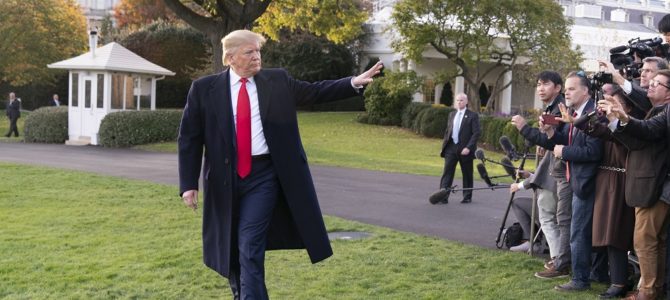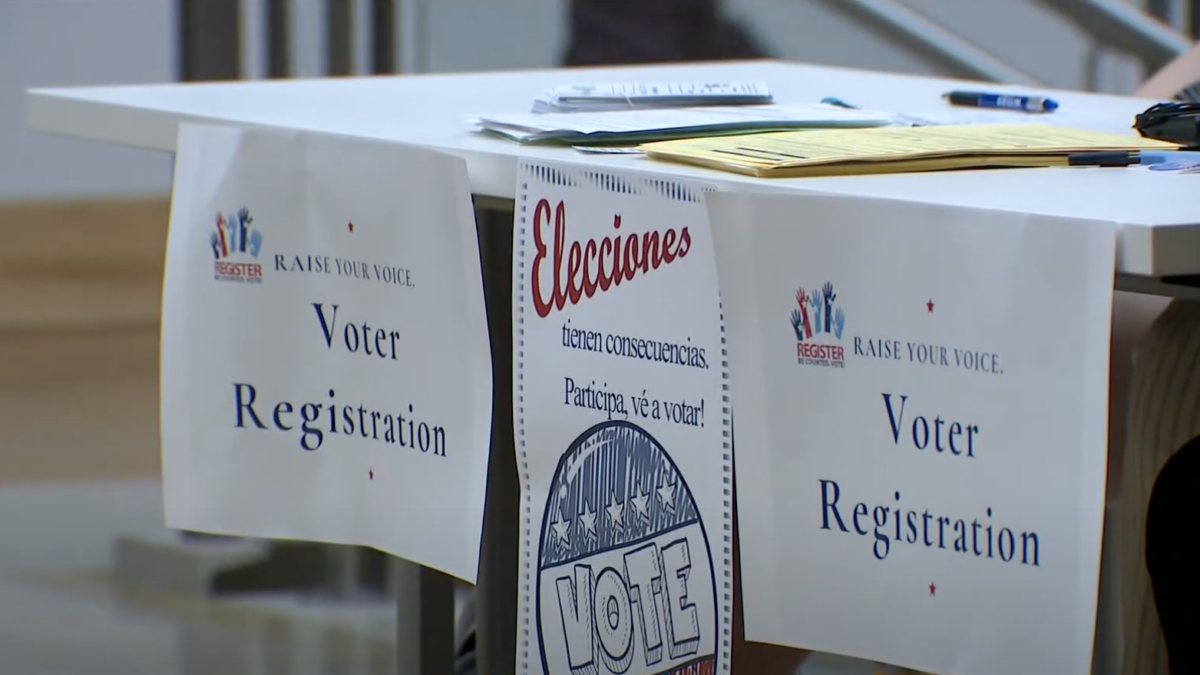
On March 4, 1825, the fifth president of the United States, James Monroe, a fighter in the Revolutionary War and the last president who was a founding father, departed the White House, retiring happily to Oak Hill, Virginia, and the life of a country gentleman.
Monroe had completed his second term as president. His predecessor, James Madison, had also completed two terms, as had Thomas Jefferson before him. It was probably quite conceivable to these men, their contemporaries in the political class, and the electorate, that, perhaps in their lifetime, another three occupants of the White House would succeed each other after completing two terms.
In reality, when Barack Obama left office in January of 2017 it was only the second time in history that three presidents in a row had served two terms—almost two centuries since Monroe had left the White House. Were Donald Trump to win a second term in 2020, it would mean we would be in an era of unprecedented incumbency, with four presidents in a row elected to two terms.
Are the strategic benefits of incumbency growing more significant? Is the American public, in general, is growing more inclined towards incumbency?
Maximizing the Advantages of Incumbency
In the Trump era we may have entered a new, and perhaps enduring political context for how long presidents endure, and how they govern: a model of increasingly stabilized incumbency, contrasted with increasingly partisan governance. An important effect of this is an emerging bipartisan consensus of normalized and fore-fronted executive authority, disparaged and contested in public but implicitly and grudgingly recognized as an ever more viable mechanism given the extent to which Congress has seized up.
Incumbency seems to have become more prevalent because presidents have used the traditional advantages of incumbency, and maximized the new, modern advantages. The traditional advantages are name recognition, national attention, successful campaign experience, control over the instruments of government, with the ability to set and time the peak effects of policy, especially economic policy, to coincide with re-election, and the strategic option of being able to decide when and if to pivot to the middle.
Presidents are relatively well situated to influence policies in ways that reward key voting blocs. There is also the time-tested Rose Garden strategy, allowing presidents to look as if they’re above partisan politics, exuding gravitas with White House imagery as a backdrop, performing the weighty duties of the presidency such as protecting national security, and representing America’s interests abroad.
In addition to these traditional advantages, modern incumbents have learned to maximize modern aspects. In a fractured media environment, the White House has a peerless advantage in breaking through the noise. It can drive the message. With the withering of the mainstream media, and round-the-clock digital campaign coverage, the president who takes advantage of his or her place in the White House can manipulate the narrative and shape campaign coverage.
Fundraising has also maximized as an advantage. Fundraising totals for 2020 candidates illustrate the advantage of being an incumbent president—and the challenge for Democrats, who are raising less money and still have to contest the nomination among themselves before taking on Trump.
The Trump campaign and joint fundraising committees ended the first quarter with $48.9 million in the bank, more than three times that of the potential challengers in a big Democratic field, according to U.S. Federal Election Commission disclosures. Democrats face a series of expensive nominating contests early next year, while the president has the luxury of focusing on building a war chest for the general election.
Greater Incumbency, Smaller Mandate
In a time when partisan division is so extreme that trust in institutions—the media, the Supreme Court, Congress—are at, or near, their lowest levels it may seem counter-intuitive that Americans have been leaning toward incumbency.
The counter-narrative of partisan division is clearly visible. Over the course of the last 100 years, emphatic electoral victories were common, and close contests, (1948, 1960, 1968, and 1976), the exception. While the pattern of incumbency seems to have settled, the elections themselves have become more roiled and closely contested: there has been nothing close to a proper landslide since 1988, two decades ago.
In all of the landslides from 1928 onward, the victor managed well more than 400, and often more than 500, Electoral College votes. In the seven elections since 1988, neither party has managed to reach 400. That is unlikely to change in the coming election. Therefore, in the newly shaping dynamic, there seems to be greater incumbency, but with less of a collective mandate for each incumbent.
A reason executive privilege is at least tacitly accepted more in the age of hyper-partisanship is that, when bypassed by executive fiat, the opposition can avoid being seen to work with the president, and are therefore not accountable to their base for crossing the aisle or working together on legislation. Executive privilege, under these partisan pressures, increasingly seems like an “out” for both sides.
Presidents tend to fare poorly in their first congressional election, often losing one or more houses, and rarely winning one back later. This creates the pattern: bitter partisanship means high midterm losses, or routs, which leads to divided government; the partisan atmosphere makes bipartisan cooperation almost unpalatable; and so executive authority becomes a more palatable alternative.
Both Sides Acting Like Kings
Operating with an Andrew Jackson-ish attitude to executive power, Trump has accelerated the usage, and therefore precedent setting, across party lines, of prominent executive privilege.
It was arguably already heading that way. In the Obama age, the administration felt it needed to more aggressively use executive power to govern in the face of obstructionism. “We had been attempting to highlight the inability of Congress to do anything,” recalled William M. Daley, who was the White House chief of staff at the time. “The president expressed frustration, saying we have got to scour everything and push the envelope in finding things we can do on our own.”
This prompted the slogan, “We Can’t Wait,” and led to the White House rolling out dozens of new policies. Angered by what they saw as presidential overreach, Republican lawmakers said the president was acting like a king. Now, arguments about imperialism, overreach, and acting like a king have lost much of their authority and coherence, because precedents have been established on both sides that would lead to accusations of hypocrisy at such charges.
“When the next Democratic President declares a national emergency over gun violence and takes executive actions to curtail gun purchases, you can thank the people urging Donald Trump to do the same with regards to the border,” conservative commentator Eric Erickson warned.
Perhaps the most significant consequence of partisan hyper-division is the normalization of fore-fronted executive power, wielded, or attempted to be wielded by presidents from both parties. Can the genie be put back in the bottle? And if a candidate wins while pledging to scale back the use of executive privilege, will he or she be able to follow through when pressures build?









